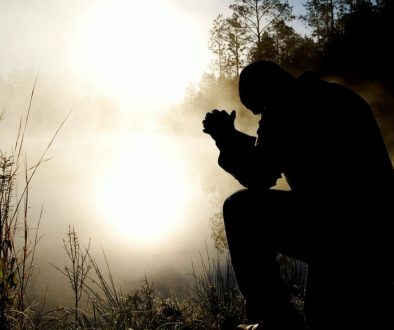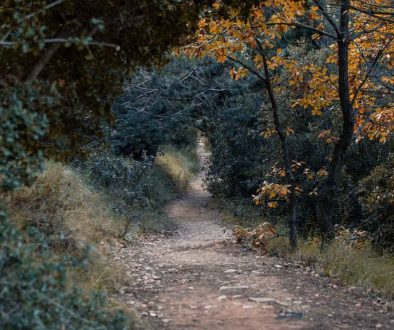The Church and the Small Town

In a day when all eyes are focused on Urban America–the cities, the diverse cultures, the high rises, the airports, the growing population–believe it or not, God is still moving in the country.
In my personal journey and study of church growth over the past 25 years, much of what I have learned has been from pastors, leaders and churches that are primarily in urban/metropolitan areas. Most church growth conferences and seminars tend to be geared more for the metropolitan church than for the church in a small town. However, I am convinced that there is still a great harvest yet to be reached in the rural towns and counties of our nation. And, it’s not a harvest of peas, rice, corn and cotton–it’s a harvest of souls–souls that the church must not neglect.
Jesus recognized this rural harvest when he said, “…Quickly, get out into the city streets and alleys. Collect all who look like they need a square meal, all the misfits and homeless and wretched you can lay your hands on, and bring them here.’ “The servant reported back, ‘Master, I did what you commanded—and there’s still room.’ “The master said, ‘Then go to the country roads. Whoever you find, drag them in. I want my house full! (Luke 14:21-23 MSG)
In defining “Rural”, the United States Census Bureau says that “Rural is recognized as counties where cities have a population of 49,999 or less.” If this is true, then the number of “rural” churches in America just rose. I believe they are correct. Truthfully, I have discovered that “Rural” can define a place or a culture, meaning that there are some rural churches in large cities. The demographics may have changed, but the culture of that church has not. Some churches in metropolitan areas are a picture of “country come to town!”
In the book, Portrait and Prospect, one of the contributors, Dr. Kimberly Ervin Alexander, in describing the congregations of the Church of God, notes, “The denomination, which began in a small community in the Unicoi Mountians called Barney Creek, now finds itself ministering in a variety of contexts. Within the United States, 35% of our congregations are still located in this type of rural setting. A slightly larger percentage (38%) of churches are located in urban areas…It should be noted that 28% of our churches are located is suburban areas.”
Interesting Church Of God Facts
• 63% of our churches are located outside of the city
• 58% of our churches average less than 100 in Sunday Morning attendance
• 80% of our churches average less than 200 in Sunday Morning attendance
• 68% of our pastors have served at their current church for 7 years or less (this means that only 32% have stayed longer than 7 years)
• 39% of Church Of God pastors are less than 45 years of age (this means that 61% of our pastors are over 45 years of age)
(This information was taken from the book, Portrait and Prospect, James P. Bowers, Ph.D. editor, Pentecostal Theological Seminary)
Allow me to give you three personal thoughts about these facts:
1. There are more rural communities in America than there are metropolitan cities
If you find this hard to believe, just take a look at the map on this link:
http://www.dailyyonder.com/files/images/YonderUSASpring.pdf
Now, I understand that the majority of our population is in the big city. But that doesn’t mean the small town isn’t important. Jesus loves the rural harvest just as much as He loves the metropolitan harvest.
2. God is calling pastors and leaders to the city and to the country
Many have looked at small rural churches as stepping stones to larger churches in big cities. Many have had the mindset that when a pastor has “done his time” in the small rural church that one day they will graduate to a larger church in the city. While this certainly happens from time to time, we must shift our thinking to believe that God calls some pastors to the country just like He calls others to the city. One location is not less of a call than the other. God has called me to the country, and I’m so thankful that he has. I have had many opportunities to leave the small town and go to great churches in the city. The only problem is that God didn’t call me to the city, He called me to the country–and I have to believe that this call to the country is not a lesser call than someone else’s call to the city. It is God’s call for me and I am good with that!
3. Pastors and leaders must be trained to do ministry in the country as well as in the city
It is a fact that most church growth teaching is primarily focused on the city. I don’t have a major problem with this because the majority of the population is found in the metropolitan areas. However, there is a world of difference between pastoring in the city and pastoring in the small rural town. There are some things that metropolitan pastors deal with that rural pastors will never face. But the same is true for the rural pastor. There are things that they battle that metropolitan pastors will never deal with. There must be training for both.
This is the reason we began Ruralpastor. Having pastored for 22 years in the same town and at the same church, and seeing this church grow from 14 people to over 800, I understand what rural pastors deal with. This is why we have developed one of the largest catalogs of tools and resources that are geared specifically for the rural pastor. I remember when I was attending seminary in 2005, and had to write a specific paper. I chose to write the paper on the subject of, “Pentecostal Church Growth in Rural America.” My professor told me that I had chosen a great subject, but that I was going to have a difficult time writing the paper because there were no resources or research available on this subject. He was right. But, I managed to write the paper and received an “A” on the finished product. I felt that God was calling me to produce materials and resources to help pastors build life giving churches in rural America. Many pastors have taken advantage of these resources and are using them in their churches every week–and they have experienced tremendous results in their churches. These resources can be viewed and ordered on our website, www.ruralpastor.com.
In my next blog, I will point out some roadblocks that every rural pastor faces and how to overcome them. I encourage you to subscribe to this blog and share it with all your rural pastor friends. Also, be looking for upcoming conferences and seminars coming soon to a town near you! God bless!!
Your Rural Pastor
Johnny H. Moore


